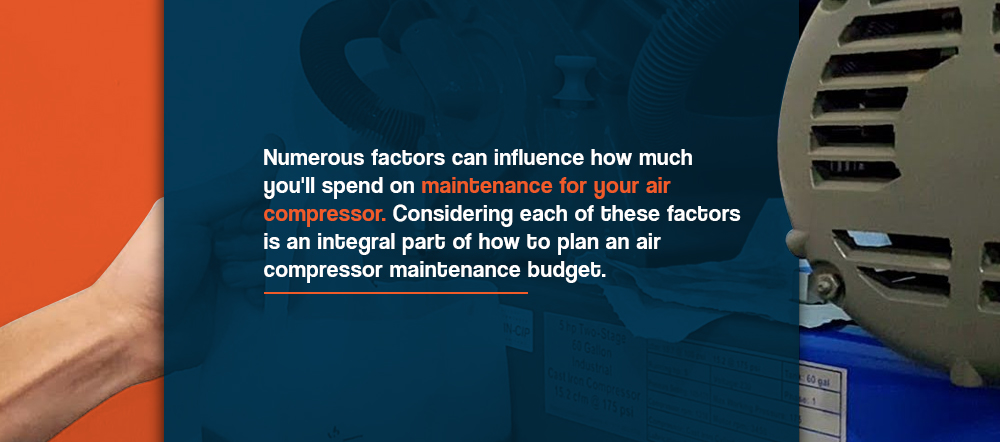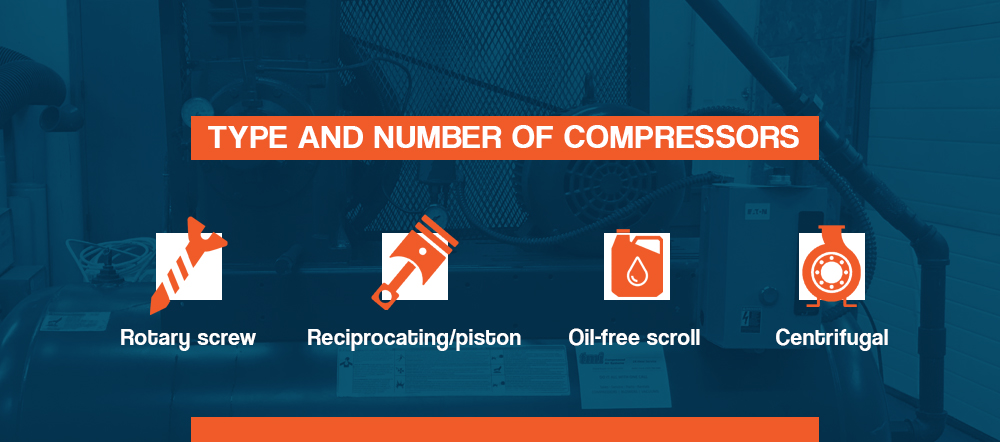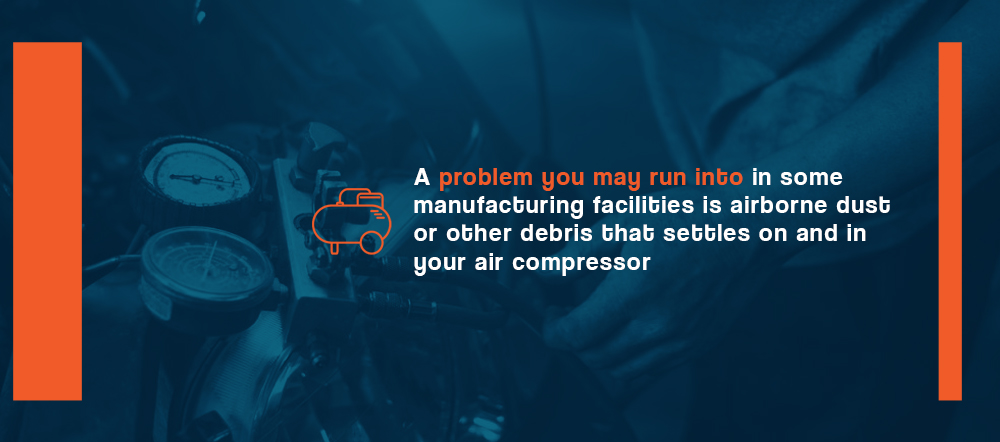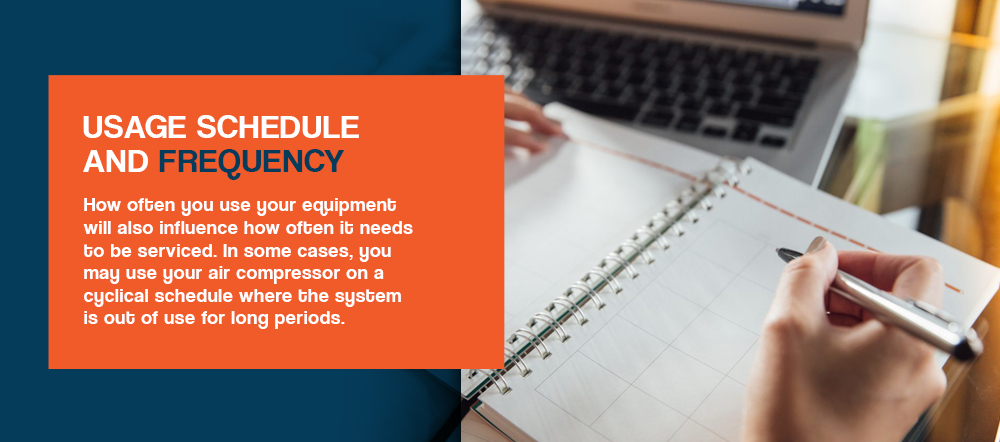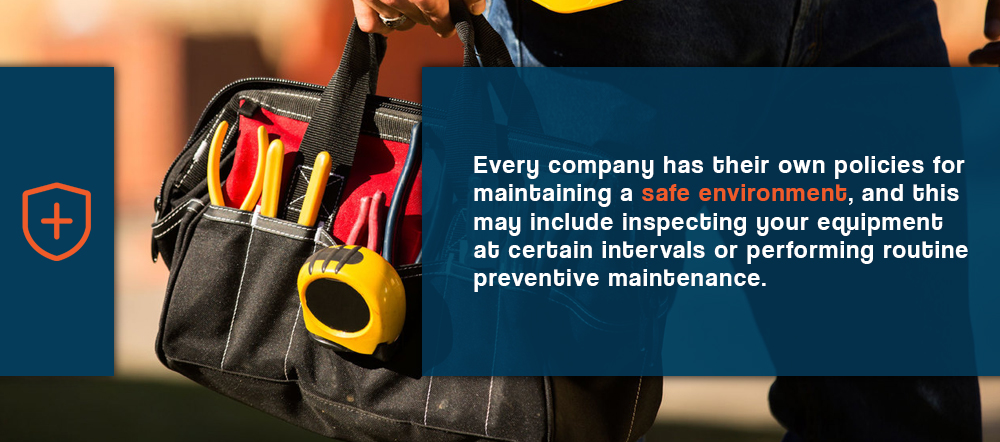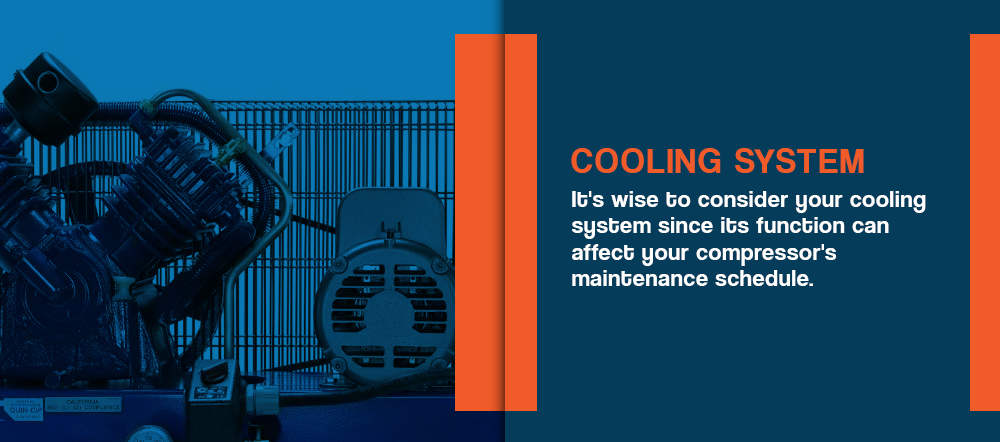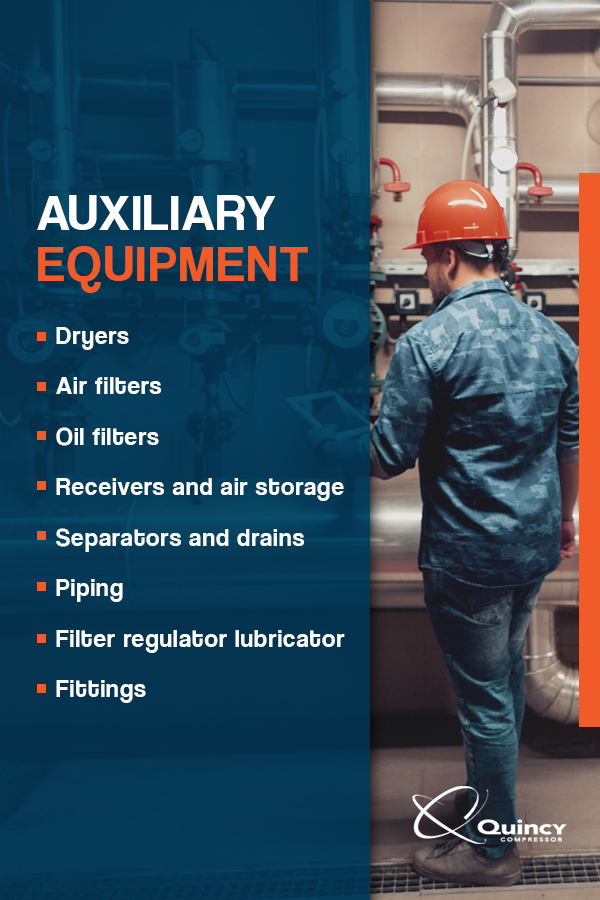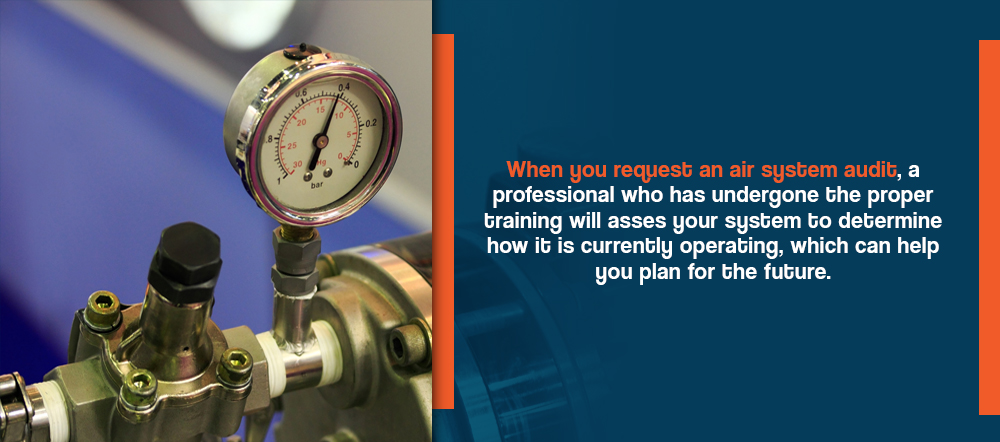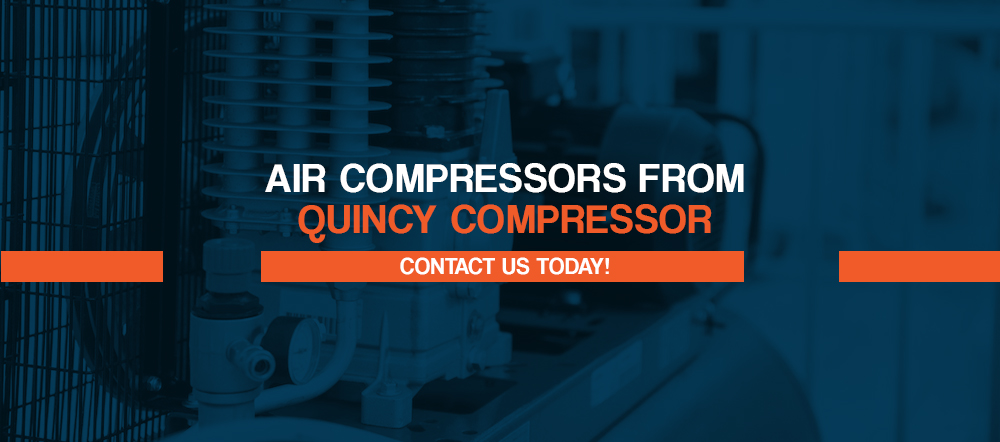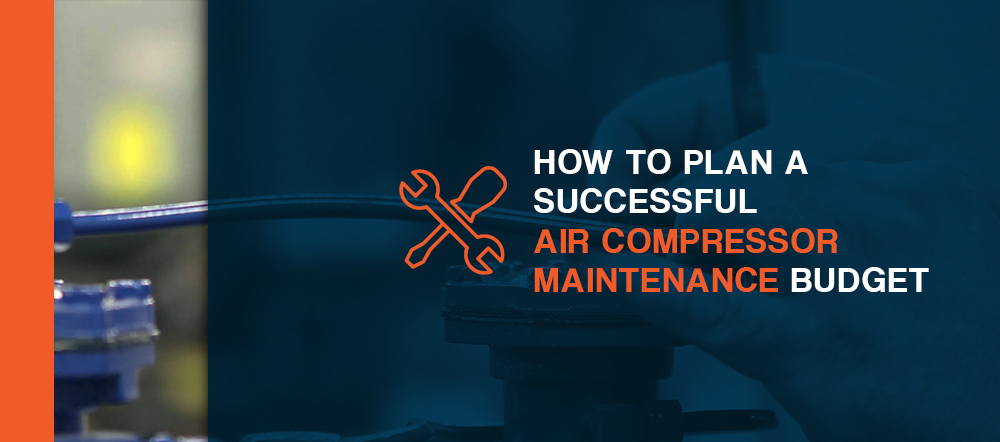
Maintenance may seem like an insignificant aspect of your air compressor operating budget. After all, air compressor maintenance tends to only constitute somewhere between 5% and 10% of yearly compressor-related expenses.
While it’s true that other expenditures, such as energy consumption, will constitute a larger portion of your overall cost for using an air compressor, you should never overlook the importance of a maintenance program for your air compressors. This program should include a well-thought-out budget that takes a variety of factors into account and takes a proactive approach to your air compressor’s maintenance.
When you don’t have a budget and plan in place for your air compressors’ maintenance, you could end up incurring higher maintenance costs or experiencing equipment failures that derail your operations. Accurately budgeting for your company’s expenses is a critical aspect of running any business, so we’re going to provide some explanation that can help in planning for your air compressor’s maintenance budget. When you develop an accurate budget for routine compressor maintenance, you can experience smoother, more efficient operations and even extend the life of your equipment.
Factors That Can Influence Your Air Compressor’s Maintenance Needs
Numerous factors can influence how much you’ll spend on maintenance for your air compressor. Considering each of these factors is an integral part of how to plan an air compressor maintenance budget. You want your budget to take all possible factors into account so it’s tailored to your specific system and is, therefore, as accurate as possible. Let’s look at the six things you should factor into your budget.
1. Type and Number of Compressors
One of the most significant factors that can influence your air compressor maintenance budget is how many compressors you have and what type they are. This will be dependent, in part, on your company’s size and what industry you’re in. Let’s review some of the most common types of air compressors you may have:
- Rotary screw: Rotary screw compressors use matched helical screws to direct air into a chamber and compress it. Standard rotary screw compressors require ongoing lubrication. Lubricant-free rotary screw machines don’t need oil, but they still require other occasional maintenance tasks, such as replacing air inlet filters, V-belts and check valves.
- Reciprocating/piston: Reciprocating compressors, like rotary screw compressors, are positive displacement machines. Instead of driving air via helical screws, however, they use multiple one-way valves to send air into a chamber, where continuous motion from a series of pistons compresses it. Reciprocating compressors will require the frequent addition of oil or synthetic lubricant in addition to other maintenance tasks.
- Oil-free scroll: Oil-free compressors tend to require less ongoing maintenance since they function without the need for oil. This makes them relatively inexpensive to maintain. These machines are well-suited to environments that must be free of contamination, such as food and beverage or pharmaceutical facilities.
- Centrifugal: Centrifugal air compressors use radial blades to pull air into a rotating impeller. Because they have a more simplistic internal design and are oil-free, they can be simpler to maintain. The rotors and cooler components will still require attention, however. Centrifugal air compressors work well for manufacturing plants that need oil-free air.
All air compressors require some maintenance. However, you’ll likely notice the biggest difference between machines that use lubricant and ones that do not since purchasing oil represents an ongoing cost in addition to other standard operating costs.
2. Installation Conditions
The installation conditions for your air compressor can also affect your maintenance budget. For example, some companies choose to install their air compressors outside to free up space in their facility and keep noise down. Outdoor installation is a valid option, but if your air compressor is exposed to any moisture, it could experience problems that require more maintenance. If the compressor is subject to extreme temperatures or humidity, this can also become a problem that will require more frequent or more serious maintenance.
Even air compressors that are installed indoors can be subject to issues like heat and humidity as well, depending on the facility. Another problem you may run into in some manufacturing facilities is airborne dust or other debris that settles on and in your air compressor. Whenever your air compressor is installed in a more rugged environment, you can expect it to require more ongoing maintenance services.
Air compressors installed in more controlled conditions are likely to require less maintenance. When issues like heat, cold, humidity and dust aren’t affecting your compressor, it will have an easier time functioning and should incur less wear. Your air compressor may last longer before needing to be replaced, as well, when it isn’t in severe conditions.
3. Usage Schedule and Frequency
How often you use your equipment will also influence how often it needs to be serviced. In some cases, you may use your air compressor on a cyclical schedule where the system is out of use for long periods. If this is the case, you may not have to service your compressor as often. However, time can take a toll on machinery, so even if you’re not using your air compressor, it may still require maintenance. A good rule of thumb is always to have your air compressor serviced at least once a year, no matter how occasionally you’ve used it.
While even lightly or cyclically used air compressors will still require some maintenance, more heavily used equipment is likely to require more attention. Especially when it comes to consumables like filters and oil, you’ll spend a lot more on a compressor that’s getting a lot of use.
If you want to avoid putting too much strain on one compressor, causing it to need frequent maintenance intervention, one option to consider is alternating between one compressor and its auxiliary equipment and another. Switching back and forth will result in each system receiving half the operating hours that one machine would have. This can help you avoid overly frequent maintenance work, which could slow down your operations.
4. Safety Levels
The level of safety you maintain can also influence the maintenance costs you incur for your air compressor. Every company has their own policies for maintaining a safe environment, and this may include inspecting your equipment at certain intervals or performing routine preventive maintenance. If your company’s safety policies dictate part of your maintenance schedule for your air compressors, then you should factor this into your budget. If policies change, be sure to update your budget so you can accurately predict these prescribed costs.
It isn’t just safety policies that can call for maintenance. If employees don’t use air compressors safely, they could inflict damage that necessitates some repairs, not to mention the potential danger they can cause to themselves. As with any machinery, the manual should explain how to use your air compressor safely. These manuals can also give you insight into signs that you may need to have your compressor serviced.
There are many safety tips you can observe to help you operate your compressor safely and avoid unnecessary maintenance expenditures or bodily injuries. Let’s look at a few of these tips:
- Avoid a combustion incident by preventing rust on your tank and replacing it if it begins to rust.
- In humid environments, keep the air circulating or add a dryer to remove moisture.
- Take care to use a non-flammable lubricant that is designed for your machine.
- Only add fuel to your compressor once it has cooled down, not right after turning it off or while it’s still on.
- Promptly clean grease or oil off of air hoses when it’s present so it doesn’t damage the hose.
5. Cooling System
In addition to the air compressor itself, your machine’s cooling system may also require maintenance. It’s wise to consider your cooling system since its function can affect your compressor’s maintenance schedule. Let’s look at a few different types of cooling systems you may have in place:
- Liquid cooling: Large compressors often have a liquid cooling system. With this type of cooling system, a coolant circulates through the system to cool it down. In most cases, liquid cooling systems require very little maintenance.
- Air-to-liquid heat exchange: Common in rotary screw compressors that use oil, air-to-liquid heat exchanges use cool air to lower the temperature of the oil as it runs through a tube. These systems typically include some parts that require occasional maintenance, such as electric-motor-driven fans and a belt drive or a right-angle gear drive.
- Liquid-to-liquid heat exchange: Another common cooling system in a rotary screw compressor is a liquid-to-liquid heat exchange setup. In this case, the hot oil and the coolant come into contact either through a shell-and-tube or plate heat exchanger. These systems can be low-maintenance, but you should always look for leaks.
- Natural air convection: In the case of natural air convection, the hot air the compressor produces is simply fanned by cooling fins so that it is dispersed throughout the room where the system is located. These should be low-maintenance systems, but they can create a warmer environment for employees and equipment nearby.
Keep in mind that some systems are closed off, while others are open. Open systems can allow airborne debris to enter the system, so they can require more maintenance. If you have your system audited or are installing a new compressor, talk to your service representative about the cooling system so that you understand its potential maintenance needs.
6. Auxiliary Equipment
In addition to the cooling system on your air compressor, other types of auxiliary equipment also require maintenance, sometimes on a fairly frequent basis. Let’s look at a few types of auxiliary equipment you should factor into your air compressor’s maintenance budget:
- Dryers
- Air filters
- Oil filters
- Receivers and air storage
- Separators and drains
- Piping
- Filter regulator lubricator
- Fittings
Some of these auxiliary pieces of equipment are consumables, meaning you’ll use them up and need to replace them periodically. Other pieces of auxiliary equipment are not consumables but can still experience wear or run into problems that require them to be replaced. In many cases, however, regularly inspecting equipment can allow you to address issues before they cause parts to fail. Instead, you can clean, tighten or otherwise service auxiliary equipment as needed to keep it in top condition.
In addition to these auxiliary pieces of equipment, for machines that use oil, you also have to consider the cost of oil as an ongoing consumable for your system. Oil-free machines tend to require fewer consumable products and less ongoing maintenance, but they will still have some of the parts above that may require servicing at times.
The key is to be aware of what types of auxiliary equipment your air compressor has so you can be prepared to give these parts the maintenance attention they deserve, ensuring your entire system stays well-maintained.
How Often Air Compressors Should Be Serviced
When you’re planning a budget for routine compressor maintenance, you need to know how frequently your system will require maintenance. There is no simple answer to this question of frequency since your system’s maintenance needs will depend, in part, on the many factors we’ve discussed.
That said, you can begin to develop a schedule for routine maintenance based on the type of compressor you have. Factoring in things like frequency of use and installation conditions can help you modify the standard maintenance schedule to better fit your situation. You may be tempted to forget about maintenace needs until something breaks down, but to determine a successful air compressor maintenance budget, you must focus on preventative maintenance. This type of maintenance is more predictable and can help you avoid system failure.
Routine maintenance tasks should occur at intervals that range from every day to once every two years or so. Let’s look at some examples of maintenance tasks that occur at these varying intervals. Note that each of these tasks applies to certain types of air compressors, so you would only complete the maintenance tasks that are necessary for your system:
- Daily: Check lubricant or fluid levels, drain the receiver tank, check the dew point on dryer systems, inspect for leaks and other problems
- Weekly: Clean the compressor and intercooler’s surfaces, look for leaks in the compressor and hoses, clean out the air intake filter
- Monthly: Inspect the belt tension, service the air filter if it doesn’t need changing sooner, clean the fluid cooler fins and aftercooler
- Quarterly: Change out lubricant, check the oil filter and change it if needed, note the torque on the pulley nuts and screws
- Biannually: Change out synthetic lubricant, take fluid samples, clean the compressor, clean the crankcase and the strainer screen
- Annually: Lubricate motors, change out air/fluid separator, test safety valves, ensure safety (HAT) shutdown system is working
- Biennially: Replace V-belts and check valves on a lubricant-free rotary screw compressor
How Completing an Air Audit Can Help
To develop an accurate budget for your air compressor maintenance, you need to understand the air compressor’s operating cost over time. In other words, you must factor in every aspect of your system that can influence its maintenance needs in order to develop an accurate budget and maintenance schedule. It can be difficult to do this on your own, which is why air auditing can be so helpful.
When you request an air system audit, a professional who has undergone the proper training will asses your system to determine how it is currently operating, which can help you plan for the future. Their audit can be completed with minimal interruptions to your operating schedule. More specifically, an air audit can cover:
- How much energy your compressors are currently consuming
- How much compressed air your operations require
- Whether there are any leaks in your system
- How much water, oil and other particulates are in the air system
- How effective your existing maintenance plan is
In addition to these evaluations, an air system auditor will make informed recommendations for how you can improve your current operations. This can be focused on any area that needs improvement, whether it be your energy consumption or maintenance program. Because an air audit can provide insight into how your company uses compressors and where you can improve your operations, it can have a positive impact right away. An air audit can help you make changes where needed or, simply, create a more accurate maintenance and operating costs budget.
Benefits of Air Compressor Maintenance Programs
So, what are the advantages of an air compressor maintenance budget? In other words, why put the time and effort into creating an accurate budget for your compressor’s maintenance? The benefits of a maintenance budget are largely tied to the fact that, when you have a budget in place, it also means you have a maintenance program in place — one that is proactive rather than just reactive.
With a maintenance program, you’re planning ahead to ensure your air compressor is utilized properly and receives the ongoing service it needs rather than waiting until something breaks and incurring higher maintenance costs and unplanned downtime. Downtime can cost companies significantly. For example, it’s been estimated that just one minute of unplanned downtime in the auto industry costs $22,000. Let’s take a closer look at the benefits of having an effective maintenance program in place for your air compressors:
- Your system will operate more reliably and at peak performance
- You can expect a longer life on your equipment
- You can avoid downtime that hurts your production schedule
- You can accurately plan for costs rather than being hit by unexpected expenses
- You can maintain a safer environment for employees
Note that all of these benefits can help you improve your operations and save you money in the long run. This makes investing in an audit and developing an effective maintenance plan well worth it.
Air Compressors From Quincy Compressor
If your own experience or an air system audit reveals it’s time to install a new air compressor, consider Quincy Compressor as your source for quality compressors. Our company has a century of experience in offering quality compressor products to meet the needs of companies across a variety of industries. Today’s current line of Quincy air compressors and accessories features many quality systems designed to keep maintenance costs at a minimum and ensure efficient operations. We also back our products with exceptionally comprehensive warranties.
When you need an air compressor system that is reliable and will enhance your operations rather than cause problems, you want to invest in the best. With Quincy, you can enjoy quality products inspired by a long-established reputation for innovation and success. We can help you find the perfect systems and parts to meet your company’s needs, so use our Compressor Concierge service or contact your local Quincy distributor today to learn more about how Quincy can equip you with the very best in air compressor systems.


